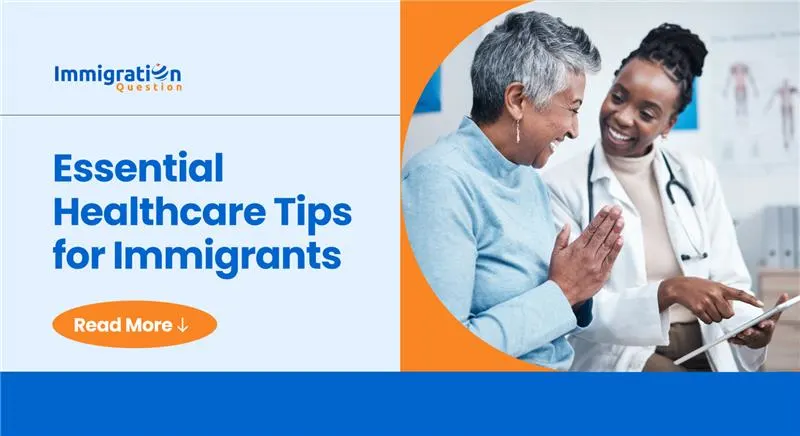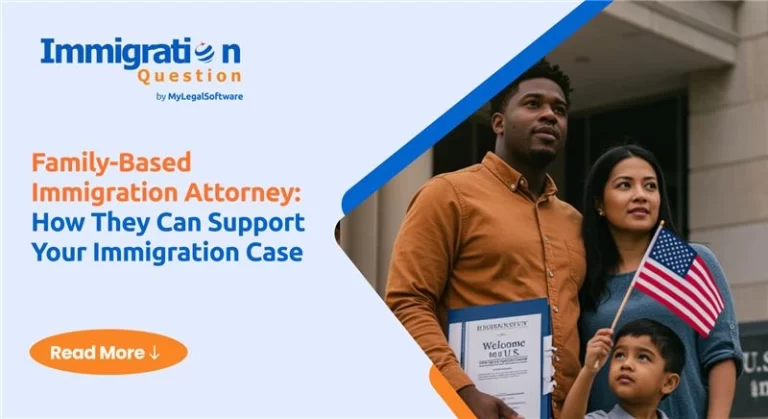Essential Healthcare Tips for Immigrants
Immigration is a topic that sparks debate across the U.S., but one thing is clear: immigrant health is just as important as that of native-born citizens. Providing adequate health care for immigrant families is essential as a public health measure and an ethical commitment.
Deferred Action for Childhood Arrivals (DACA) recipients now have access to health insurance under the Affordable Care Act, thanks to the Obamacare initiative. This new development marks a significant step forward in expanding healthcare access for immigrants. However, as more diverse communities emerge, particularly in urban areas, the U.S. healthcare system must address immigrant challenges in accessing quality healthcare.
As an immigrant, regardless of status, you must understand the U.S. healthcare system and know your healthcare rights to make informed choices for yourself and your family. Here are essential healthcare tips for U.S. immigrants who want to overcome barriers to medical access, understand health insurance, and exercise their healthcare rights.
The U.S. Healthcare System and Insurance Options
The U.S. healthcare system is a mix of private and public providers that serve different groups. For immigrants unfamiliar with the system, navigating healthcare can be challenging. Here are the components of the system.
Private vs. Public Healthcare
In the U.S., healthcare is primarily private, meaning most people need health insurance to afford medical care. Access to immigrant health insurance is restricted, especially for those without citizenship. However, private insurance provides access to various services, including specialized care. International students, for example, must seek private health insurance to cover their medical needs in the U.S., as they do not qualify for public healthcare.
Insurance Networks and Providers
American health insurance operates through a network of providers that offer services to participants of each plan. Immigrants choosing health insurance should carefully evaluate the network options available. Services are often more affordable if accessed within the network, while “out-of-network” services can result in high out-of-pocket costs. Understanding in-network vs. out-of-network differences can save you from unexpected expenses.
Out-of-Pocket Costs
Even with health insurance, some expenses are not covered, meaning they are “out-of-pocket” costs. Out-of-pocket costs include deductibles, co-payments, and coinsurance. They are beneficial for immigrants who are new to U.S. healthcare. Familiarizing yourself with these terms can help you manage your medical expenses effectively.
Immigrant Challenges in the U.S. Healthcare System
Immigrants often face obstacles in getting medical access. Most immigrants live in metropolitan areas where safety-net healthcare services such as community clinics and non-profit hospitals are usually available. These safety-net facilities, however, may be impacted by immigration enforcement policies that indirectly create hurdles for immigrant health. Here are some of the immigrant challenges in accessing health care:
- Limited Immigrant Health Insurance Access: One of the immigrant challenges is that many immigrants, particularly undocumented ones, are ineligible for traditional health insurance. This ineligibility results in few preventive care services and poor health outcomes in immigrant communities.
- Fear of Immigration Enforcement: Fear of deportation can prevent undocumented immigrants from seeking medical help, even in emergencies, as they may worry about revealing their status.
- Economic Challenges: Despite often having at least one full-time worker in the household, many immigrant families struggle to afford the high healthcare costs.
Know Your Healthcare Rights as an Immigrant
Every immigrant in the U.S. has certain healthcare rights. Knowing these rights is vital, especially in emergencies. Federal and state programs ensure that essential medical services are available to all, regardless of immigration status.
- Emergency Medical Care: Under the Emergency Medical Treatment and Labor Act (EMTALA), all hospitals participating in Medicare must provide emergency care to anyone in need, regardless of immigration status or ability to pay. This provision ensures that immigrants cannot be denied care in an emergency due to their status.
- Community Clinics and FQHCs: Federally Qualified Health Centers (FQHCs) and community clinics offer affordable or free care based on income and do not require proof of citizenship. These centers provide vital services such as primary care, preventive care, and referrals for specialized treatment.
- Programs for Pregnant Women and Children: Some states, like California, extend healthcare programs to undocumented pregnant women and children, recognizing the need for accessible medical access for vulnerable groups. Low-income children under 19 can qualify for California’s Medi-Cal program, while pregnant women may access the Access for Infants and Mothers (AIM) program.
Accessing Health Insurance as an Immigrant – Healthcare Tips for Immigrants in USA
Securing health insurance is an essential step in achieving medical access. Health insurance covers medical expenses and improves immigrant health by enabling regular visits, preventive care, and treatments for chronic conditions. Here are a few pathways to consider:
- Emergency Medicaid: In some states, Emergency Medicaid covers emergency medical services for all immigrants who meet specific criteria, including conditions that pose severe health risks.
- CHIP for Children: In certain states, immigrant children are eligible for the Children’s Health Insurance Program (CHIP), which provides health coverage to children from low-income families who do not qualify for Medicaid.
- Employer-Sponsored Health Insurance: Although some industries have limited healthcare benefits, many employers offer insurance options or health savings accounts (HSAs). Employer-sponsored plans can provide a reliable source of medical access.
Addressing Financial Barriers in the U.S. Healthcare System
The high costs associated with U.S. healthcare can be a significant barrier to medical access. Health insurance can help mitigate immigrant challenges, but understanding how to budget for additional out-of-pocket costs is essential. Here’s how immigrants can manage these expenses:
- Financial Assistance Programs: Some hospitals and clinics offer financial aid or sliding-scale payment options based on income. These programs make healthcare more accessible for low-income immigrant families. Federally Qualified Health Centers (FQHCs) and community health centers are great resources, providing affordable care regardless of insurance status.
- Catastrophic Coverage Options: Some states offer catastrophic insurance plans for immigrants under 30 or those facing economic hardship. While these plans have higher deductibles, they provide essential coverage in case of major health issues.
- Advocacy Groups & NGOs: Numerous immigrant advocacy groups and nonprofits work to bridge the gap in healthcare rights and medical access for immigrants. These organizations provide guidance on eligibility for various healthcare programs and offer support in understanding the U.S. healthcare system. Organizations like the National Immigration Law Center (NILC) and the Migrant Clinicians Network (MCN) provide excellent resources.
Overcoming Healthcare Illiteracy – Healthcare Tips for Immigrants in USA
The U.S. healthcare system can be difficult to figure out even for native-born citizens, but language and cultural differences can exacerbate these challenges for immigrants. Here are tips to help overcome these obstacles:
- Language Assistance: Many hospitals and clinics offer interpretation services. Knowing you can ask for language support can help you communicate effectively with healthcare providers.
- Health Literacy: Familiarize yourself with common healthcare terms and procedures. This knowledge will reduce misunderstandings and help you advocate for your healthcare needs. NILC and MCN provide the basic education to make informed healthcare decisions.
- Culturally Competent Providers: Find health insurance providers who understand and respect your cultural background. These providers can improve the quality of your care.
Take Control of Your Health – Healthcare Tips for Immigrants in USA
Understanding the U.S. healthcare system as an immigrant may be difficult, but leveraging available resources and understanding your rights can help protect your health and well-being. While immigrant challenges in the healthcare system are real, support exists through safety-net facilities, community programs, and rights protected by federal law.
About Immigration Question
Immigration Question is a revolutionary platform that connects immigration attorneys to people who have immigration-related enquiries. We provide guidance on U.S. visas, citizenship, and green cards, keep you informed with the latest immigration news, and foster a knowledgeable community for support and insights.









